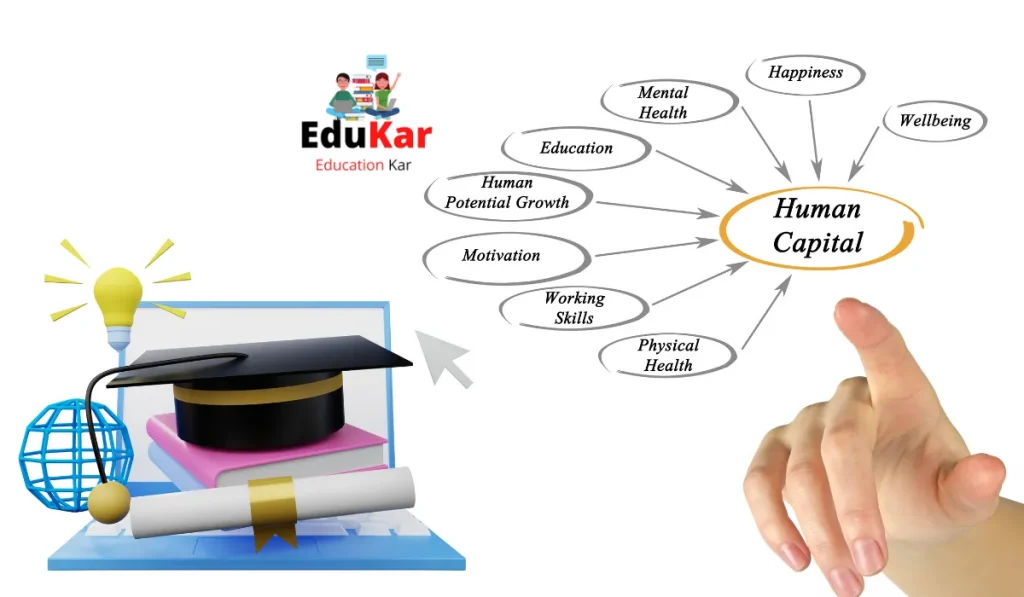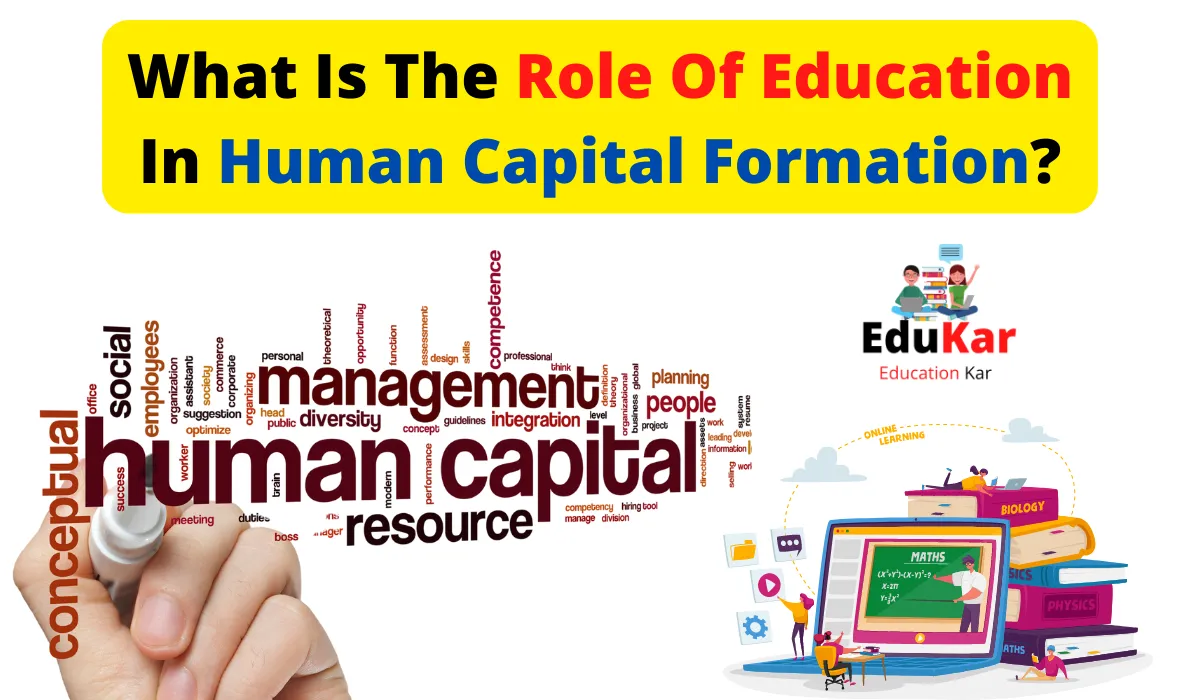The role of education in human capital formation has been debated for at least thirty years. But, the debate was a heated one. Education is important because it shapes the skills and knowledge people need to partake in the labor market. And the more education is available to people, the more they are able to participate in the labor market. Education also provides people with a general understanding of the world. The more educated people are, the better they can contribute to society.
In this blog we are going to discuss about “What Is The Role Of Education In Human Capital Formation”

The measure of capabilities, educational quality, and characteristics of the labor force in a country, influencing their productivity and earning capacity or potential, is called as human capital. The human capital of an economy can be defined by gross human capital. It is quantified by national academic standards. The function of education in human capital formation cannot be overstated.
In this blog, you will find out how education is the most significantly mainly factor for human capital formation. Education is the most effective tool to enhance and boost the capacity of the workforce of a country. There is a huge difference between the cost of education and the benefits gained from it. This difference is the proportion of the value of the human capital of a country. Education encourage in enhancing a country’s income and in the overall development of a society. The significance of human capital formation cannot be overemphasized. Through this blog, we will examine the function of education in human capital formation. Without further bother, let us take a look at human capital development and the significance of education.
Importance of Human Capital
Human capital has a important role in molding a country’s economy.
Solving unemployment matters: Employers favor and look out for a workforce with decent human capital. Thus, having steady human capital can mold one’s job career and solve the problem of unemployment.
Enhancing the standard of employment: Individuals with great human capital can create employment opportunities for oneself. Often, highly creative and competent jobs make good stage for self-employment. Human capital permit individuals to be capable of such job roles.
Boosting economy and productivity: Human resource development is mainly responsible for the development of the economy of a country. A creative, skilled and hard-working workforce help boost productivity and aid the nation’s economic development.
Lowering migration of skilled workforce: Globalization has led to expand migration of professional workers from their own nation to countries offering a higher income to them. This has a negative effect on a country’s development as it bring the loss of the best human resources and workforce. Increasing the quality of human resources by improving the quality of human capital can lead to a reduction in workers’ migration.
Function of Education in Human Capital Formation
For the growth and expansion of human society, education has always played a vital role. Education is directly related to the development of society and humanity. There are various mediums through which education can be disseminated. For an organization, it is always more profit-making to hire professional and qualified personnel compared to hiring unskilled ones. The earnings of skilled professionals are much greater compared to that of unskilled people. A skilled person contributes much more to a country’s economy than compared to unskilled person.
Under are some of the functions that education plays in human capital formation:
- Education help in increasing the growth of a country’s economy. Besides, it also enriches our life experience by giving greater insight into a number of topics. Education is the greatest way of acquiring information about something, after which can be applied in real life to intellectually growth as an individual.

- An educated society always stays in lead and is more progressive than a society with low quality of education and educational grades. Furthermore, it encourages in raising the standard of the human capital of a country. This in turn boost the national income of a country and increase government functionaries.
- Education also give the opportunity to enhance cultural richness.
- Education can also be encouraging for the youth of the country giving them new visions and hopes for a developing society. Thoughts and visions of youths can be accurately molded with the help of education.
- Education plays a vital role not only in the growth of an individual but also in the overall growing of society.
Significance of Education and Human Capital in the Economic Development of a Country
In the case of the economic growth of a country, human capital is one of the main factors driving it. Education directly effects the qualitative growth of a country’s human capital. For an increased growth and amplification of the economy, the government needs to aim on increasing the quality of its human capital. That is why many countries that put money into in education and drive the development of human capital remain ahead of others. The advantages are twofold as education helps the government to have a skilled workforce on the one hand, and, on the other part, it gives individuals with the opportunity to experience an good lifestyle. Thus, education helps in growing human capital which in turn gives individuals with their best living and working experiences.
Conclusion
There are various important function of education in human capital formation. Education ease social development. In comparison to an illiterate workforce, an educated workforce is much more well organized for a country’s progress. Productivity and prosperity are much more increased with the help of education. It also encourages us experience a much more enriched lifestyle. Education help in the growth of every individual, which in turn helps form a literate and knowledgeable society.
FAQs
What is Human Capital Formation?
Human capital formation is the process of generating, acquiring or retaining human capital. It is the process of using human resources to produce goods or services. The process generates a flow of human capital that can be used by an individual, firm or nation to produce goods or services.
What is the role of human capital formation in India?
Human capital formation is a process that includes all of the activities that take place in the process of educating and training individuals. In India, human capital formation is a major focus of policy makers.
What are the benefits of human capital formation?
There are four main benefits of human capital formation.
-The first is that human capital formation is a key factor for economic growth.
-The second is that human capital formation allows for economic stability. -The third is that human capital formation can promote technological progress.
-The fourth is that human capital formation can have a positive impact on the environment.
Conclusion
Education is a vital and necessary part of human capital formation. Without it, people would never be able to reach their fullest potential and contribute to society. Education is also a key factor in human capital formation because it teaches people how to learn and build skills. Education can also be very helpful for those who want to work. Education prepares the workforce for the future. However, education has also been criticized for being a waste of time and money, as it doesn’t always lead to lasting employment.
We hope you enjoyed reading about the role of education in human capital formation. Our blog post highlights the changes that are happening in higher education and how an increased focus on career readiness can benefit all students. Read closely and see if our blog post is able to provide you with valuable insights. If you have any questions, please don’t hesitate to reach out to us at www.edukar.in.
Thank you for reading, we would love to hear from you!]





